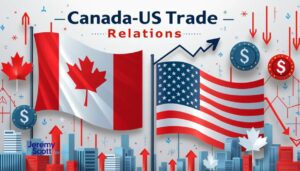
Provincial Sales Tax Regulations in Canada
Insights into provincial sales tax regulations across Canada. Understand variations, compliance and how these regulations impact businesses.
Stay updated with the latest news, tips, and guidance on tax law from our editorial team.

Insights into provincial sales tax regulations across Canada. Understand variations, compliance and how these regulations impact businesses.

Navigate the complexities of GST and HST with ease. Learn essential rules and simplify compliance for your Canadian business today!

Gain insight into Canadian indirect taxes with this detailed overview. Understand key concepts, benefits, and implications for individuals and businesses alike.

Accurate record-keeping is vital for robust audit defense. Safeguard your business from compliance risks by mastering effective documentation practices today!

Safeguard your assets with effective audit defense strategies. Learn how to navigate audits confidently and protect your financial interests today!

Canada’s tax landscape changes on October 1, 2025, when the Canada Revenue Agency (CRA) updates the Voluntary Disclosures Program (VDP).

Get informed about provincial gambling tax rates in Canada today. Understand the details that could affect your gaming experience and financial planning.

Navigating tax audits can significantly shape business strategies. This guide helps businesses understand the audit process and mitigate its impact effectively.

Navigating tax audit disputes can be complex. This professional guide offers essential strategies for effective resolution and achieving favorable outcomes.

For Canadian businesses, gaining a thorough understanding of provincial sales tax is of paramount importance. This understanding is essential for sound financial planning, allowing businesses to accurately forecast expenses and revenue streams. A clear grasp of provincial sales tax regulations enables companies to make informed decisions regarding pricing strategies, budgeting, and overall financial management.

Canadians can verify a business’s GST/HST registration through the Canada Revenue Agency’s online GST/HST Registry by using the account number, business name, and transaction date. It’s essential for businesses to display their GST/HST number on invoices, and non-residents selling goods in Canada must also register for GST/HST. For complex tax issues, consulting a qualified Canadian tax lawyer
is recommended.

Get insights on future gold prices in Canada and what experts predict for the Canadian market. Prepare to make informed investment decisions today.

Family businesses contribute significantly to Canada’s economy, but ensuring their continuity across generations requires strategic succession planning. Tax lawyers play a crucial role in this process, helping families navigate complex tax laws and minimize liabilities.

Canadian small businesses are facing turbulent times as global trade policies undergo rapid transformation. Tariff changes, a phrase now central to business operations, reflect the widespread adjustments nations are making to trade agreements, often involving the imposition of tariffs that disrupt international commerce.

Canada has launched an unprecedented C$29.8 billion retaliatory tariff package against the United States, marking a significant escalation in the growing trade dispute between the long-standing allies. Understanding cross-border trade considerations has become crucial as the U.S. imposed 25% tariffs on Canadian steel and aluminum imports, threatening the integrated North American trade relationship.

Canadian Tax Landscape: Key Updates for 2025 As we navigate through 2025, the Canadian tax system continues to evolve. From changes in GST/HST regulations to new electronic filing requirements, businesses and individuals need to stay informed. Let’s explore the critical updates that will impact your tax obligations and business operations